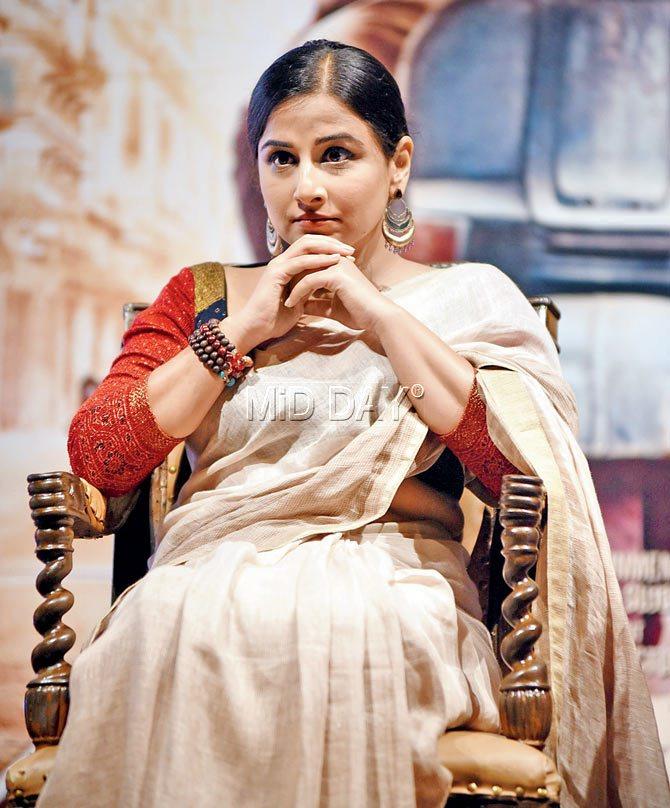Filmmaker Srijit Mukherji discusses how sex workers in Kolkata's Sonagachi area helped Vidya Balan become Begum Jaan and how the actress saw it as a story of survival and not as a woman-oriented film

How sex workers helped Vidya Balan become brothel madam Begum Jaan
 Vidya Balan as Begum Jaan
Vidya Balan as Begum Jaan
ADVERTISEMENT
In the rough cut of the trailer for 'Begum Jaan', Vidya Balan emerges as a glorious figure — a brothel madam, holding on to the last of what's her own. She was always meant to be the hero of this historical drama, insists National Award-winning Bengali filmmaker Srijit Mukherji.
“When I first approached her with the script, she was taking some time off from work. So, I went on to make Rajkahini (the Bengali original starring Rituparna Sengupta). A year later, when I came around to Vidya and showed her that film, she was stunned with the characterisation.
She was also surprised by the world I had created; it's not often that such stories come to the forefront of popular literature. Going by the script, she thought the milieu resembles Mandi (1983 film featuring Smita Patil and Shabana Azmi), but the backdrop was more historical. In three hours, she gave her nod,” says Srijit.
Though inherently feminist in tone, Vidya saw the film as a story of survival, Srijit says. “She wasn't trying to do another woman-oriented movie. As a sharp, versatile actor, she absorbed the spirit of the film. 'Begum Jaan' makes her choices and is fiercely protective of her space, much like Vidya. The space could be her body, or her home.”
When she arrived on the set on day one, Vidya had already immersed herself in the character, exuding the “aura, arrogance and authority” of a brothel madam, Srijit recalls. “She insisted on laying out the backstory of the protagonist and we spent a month doing just that. We dissected her fiery side. I have shot an entire film in Sonagachi [a red light area in Kolkata], and Vidya studied those women and why they chose the lives they did. Some were forced, some lured… some have taken it in their stride, grudgingly accepting it as their fate. Then there were these firebrand women, proud, irreverent and unapologetic.”

Vidya Balan
Inspired by the works of Sadat Hasan Manto, including Toba Tek Singh, Dog Of Titwal and Khol Do, Mukherji gives his film a contemporary twist.
“I wanted to bring to the forefront stories of the ostracised and the marginal lot, like Manto did. This film is not just the story of Partition. It rises to create an umbilical cord joining 1947 to 2017. The right to space could apply to anyone today, be it those who are evicted from their property in the name of development or refugees across the globe,” he explains.
 Subscribe today by clicking the link and stay updated with the latest news!" Click here!
Subscribe today by clicking the link and stay updated with the latest news!" Click here!






